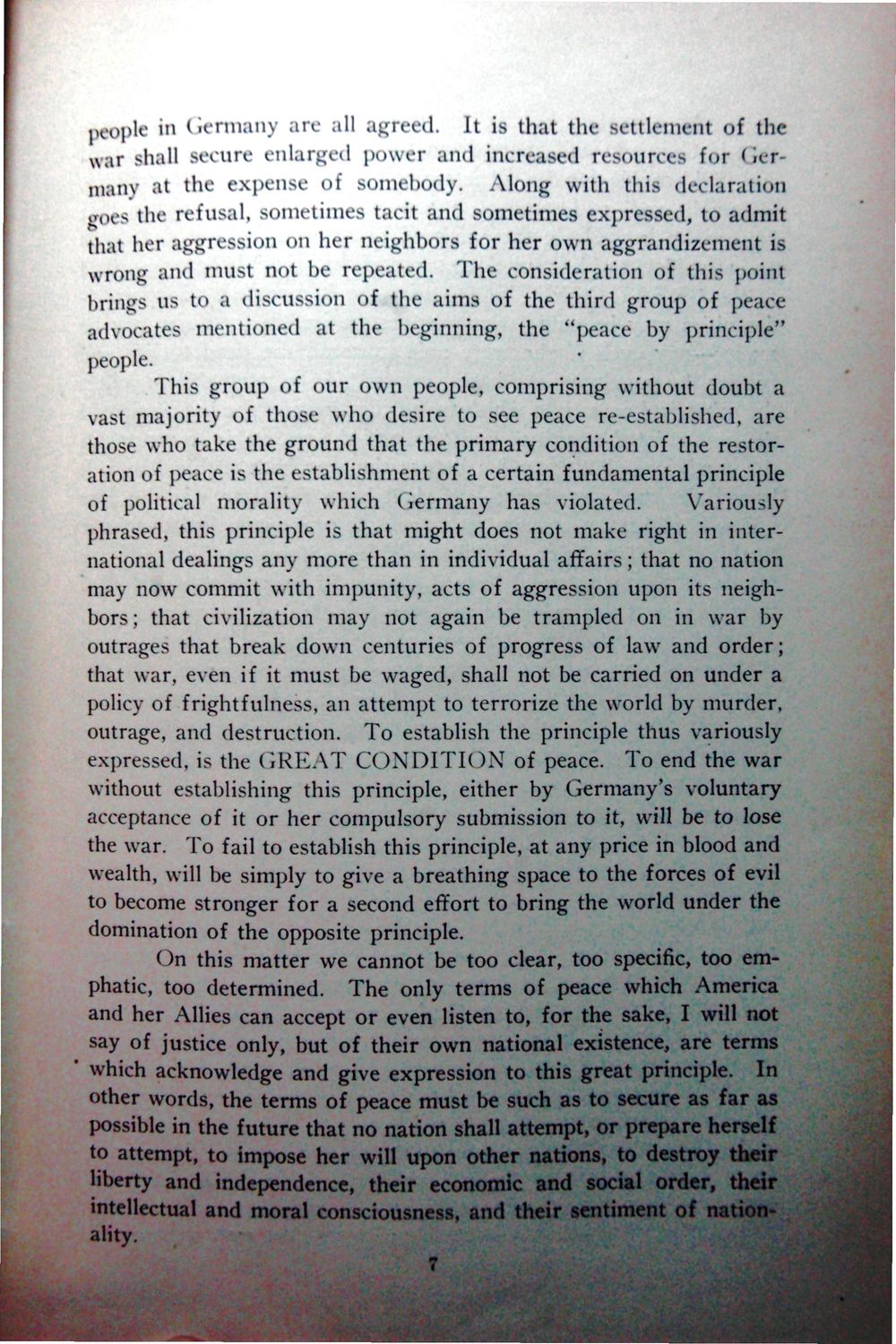| |
| |
Caption: War Publications - WWI Compilation 1923 - Article 13
This is a reduced-resolution page image for fast online browsing.

EXTRACTED TEXT FROM PAGE:
people in t .ermany are all agreed. It is that the settlement of the war shall secure enlarged power and increased resources for Germany it the expense of somebody. Along with this declaration foes the refusal, sometimes tacit and sometimes expressed, to admit that her agression on her neighbors for her own aggrandizement is wrong and must not be repeated. The consideration of this point brings us to a discussion of the aims of the third group of peace advocates mentioned at the beginning, the "peace by principle" people. This group of our own people, comprising without doubt a vast majority of those who desire to see peace re-established, are those who take the ground that the primary condition of the restoration of peace is the establishment of a certain fundamental principle of political morality which Germany has violated. Variously phrased, this principle is that might does not make right in international dealings any more than in individual affairs; that no nation may now commit with impunity, acts of aggression upon its neighbors; that civilization may not again be trampled on in war by outrages that break down centuries of progress of law and order; that war, even if it must be waged, shall not be carried on under a policy of (rightfulness, an attempt to terrorize the world by murder, outrage, and destruction. To establish the principle thus variously expressed, is the GREAT C O N D I T I O N of peace. To end the war without establishing this principle, either by Germany's voluntary acceptance of it or her compulsory submission to it, will be to lose the war. To fail to establish this principle, at any price in blood and wealth, will be simply to give a breathing space to the forces of evil to become stronger for a second effort to bring the world under the domination of the opposite principle. On this matter we cannot be too clear, too specific, too emphatic, too determined. The only terms of peace which America and her Allies can accept or even listen to, for the sake, I will not say of justice only, but of their own national existence, are terms * which acknowledge and give expression to this great principle. In other words, the terms of peace must be such as to secure as far as possible in the future that no nation shall attempt, or prepare herself to attempt, to impose her will upon other nations, to destroy their liberty and independence, their economic and social order, their intellectual and moral consciousness, and their sentiment of nation7
| |